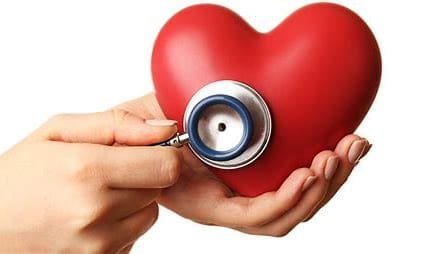Introduction

Atherosclerosis is a medical disease caused by the narrowing and obstruction of the arteries, which are the blood vessels conveying oxygenated blood from the heart to the rest of the body. These result from the accumulation of plaques, which contain fats, cholesterol, calcium, and other ingredients that are present in blood. The restriction of the blood flow leads to severe complications, including heart diseases, strokes, or death. Preventing the blocking of arteries is essential for long-term cardiovascular health. Though lifestyle changes cannot eliminate the risk, they will greatly minimize it. Here is a guide on how to protect yourself from blocked arteries and enhance heart health.
1. Know the Risk Factors
Many factors predispose a person to developing clogged arteries, and some of these we have no control over, while others we can. Among the risks that we have no control over are age, family history of heart disease, and genetics, while those that we can alter include diet, physical activity, smoking, and stress.
Prevention begins with knowledge of risk factors and proactive steps to decrease them.
2. Adopt a heart-healthy diet.
Diet plays a significant part in preventing the hardening of arteries. A heart-friendly diet aims to include most whole foods, fruits and vegetables, whole grains, lean proteins, and good fats. Here are a few specifics about dietary practices.
Be wise about saturated and trans fats. Red meat, high-fat dairy products, fried foods, and processed snack foods are high in saturated and trans fats. Replace them with healthier alternatives such as olive oils, nuts, seeds, and avocados.
Choose fiber-rich foods soluble fiber: It is found in oats, beans, and some fruits, helps dissolve cholesterol in the body and ultimately remove it from the system. The best sources are whole grains and legumes.
Include Omega-3 Fatty Acids: As in fatty fish such as salmon, sardines, and mackerel, omega-3 fatty acids help reduce inflammation; they may also lower your chance of heart disease. If you are not a regular fish consumer, consider adding a fish oil supplement to your diet after consulting with a doctor.
Incorporate antioxidant-rich foods: Fruits and vegetables contain antioxidants that fight oxidative stress and inflammation, two factors in the development of atherosclerosis. Try to have colorful varieties of produce to get a wide range of nutrients.
Watch salt intake: High sodium intake can lead to high blood pressure, a risk factor for atherosclerosis. Limit salt by avoiding processed foods and flavoring your meals with herbs and spices instead of salt.
3. Maintain Activity Levels through Exercise in the Regular Range
Exercise is very important for the heart, as it maintains healthy blood flow, improves circulation, and helps in weight control. Physical activity lowers blood pressure, improves cholesterol levels, and reduces the risk of clogged arteries. Aim for at least 150 minutes of moderate aerobic exercise per week, such as walking, cycling, or swimming. Strength training exercises at least twice a week can also support cardiovascular health.
Start with short minutes and gradually increase over the weeks in duration and intensity. Even gardening or dancing up the stairs counts. Consistency is key; try to find exercises that you enjoy so that when the motivation runs out, you will have built a habit.
4. Keep Low Stress

Chronic stress is an underlying cause of heart diseases and blocked arteries since it will increase blood pressure and the amount of stress hormones like cortisol released into the body. These hormones lead to inflammation as well as increased cholesterol production, which is the contributor to plaque development. Tips on how to effectively manage stress:
Practice mindfulness and relaxation techniques: Meditation, yoga, and deep-breathing exercises can help reduce the level of stress and thereby lower heart rate.
Achieve work-life balance: This helps in balancing work, family time, and leisure time. Take breaks and involve yourself in hobbies.
Obtain adequate rest: This is one way people manage to control stress and ensure their health is good. Resting both body and mind through sleeping for about 7-9 hours each night.
5. Quit smoking
Smoking is the most significant risk factor in the blockage of arteries. Chemicals in tobacco damage the inner lining of the blood vessels, leading to the deposition of plaque and blood clots. Quitting smoking reduces the risk of atherosclerosis and has almost immediate health benefits. Within one year of quitting, the risk of heart disease reduces significantly.
If quitting smoking proves difficult, some helpful additions can include counseling, support groups, and nicotine replacement therapy. Many have used multiple ones to stop successfully.
6. Stay at a Healthy Weight
Excess weight, particularly around the abdomen, increases the risk for clogged arteries. Many times, excess weight promotes high blood pressure, high cholesterol, and insulin resistance in the body, and all of these factors work to damage blood vessels.
Maintain a healthy weight with a balanced diet and regular exercise. Avoid fad diets, which induce rapid weight loss, leading to rapid regain; thus, instead adopt the practice of making sustainable changes with portion control, whole foods, and regular activity.
7. Regular health check-ups
The prevention of blocked arteries may even be facilitated through regular follow-up check-ups. Try to monitor your blood pressure, cholesterol level, and blood sugar in case the conditions have a family history among them. Your doctor might prescribe medicine and suggest lifestyle modifications once s/he detects high cholesterol and increased blood pressure.
8. Reduce alcohol intake
While moderate alcohol consumption can be related to some positive effects on the heart, excessive drinking is bad for health. High alcohol intake is known to elevate blood pressure and cause weight gain.
Abstain from alcohol; the health guidelines suggest one drink per day for women and two drinks per day for men.
Conclusion

Living a conscious lifestyle can make it possible to prevent hardening of arteries. All these conditions can be reduced by adopting a heart-healthy diet, staying active, managing stress, quitting smoking, and keeping regular medical appointments. These habits could help you nurture your heart while also contributing to general wellness and quality of life. Keep in mind that it requires a process to change these behaviors; consistency builds the foundation over time.



